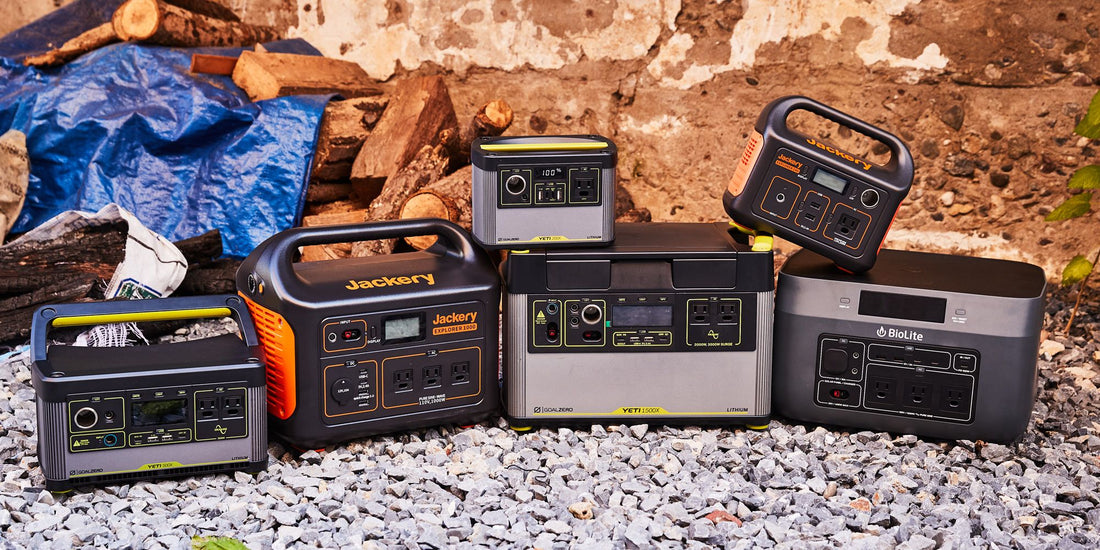Forget power generators: stick to deep dish pizza instead!

At Rupiani's we had a choice: should we pursue power generators or should we pursue stuffed deep dish pizza? Given our status as a successful business, the choice we made is now obvious. But let's take a moment to look more deeply into power generators, the pros and cons, and their unique attributes.
Power generators are essential tools for providing electricity in situations where the main power supply is unavailable or unreliable. They are used in various settings, from homes and businesses to construction sites and outdoor events. However, like any technology, power generators come with their own set of advantages and disadvantages. Here’s a detailed look at the pros and cons of power generators:
Pros of Power Generators
1. Reliable Backup Power
- Emergency Situations: Generators provide a reliable source of backup power during electrical outages caused by storms, accidents, or other emergencies.
- Business Continuity: They ensure that businesses can continue operating and avoid disruptions in case of power failures.
2. Versatility and Portability
- Various Applications: Generators come in different sizes and types, suitable for a range of applications from small portable units for camping to large industrial generators.
- Portability: Portable generators can be easily moved to different locations, making them useful for outdoor events, construction sites, and remote areas.
3. Self-Sufficiency
- Independence: Having a generator allows you to be independent of the main power grid, ensuring you have power when it's most needed.
- On-Demand Power: You can use a generator to provide power on demand for specific needs or activities.
4. Enhanced Safety
- Critical Systems: Generators are crucial for powering essential systems such as medical equipment, sump pumps, and security systems during outages.
- Comfort: They help maintain comfort by powering heating, cooling, and refrigeration systems.
5. Increased Property Value
- Attractive Feature: Homes and businesses equipped with reliable backup power sources may have increased property value and appeal.
Cons of Power Generators
1. Cost
- Initial Investment: Generators can be expensive to purchase, especially larger models with higher capacities.
- Maintenance Costs: Ongoing maintenance, fuel, and repair costs can add up over time.
2. Noise Pollution
- Operational Noise: Many generators produce significant noise during operation, which can be disruptive in residential areas or quiet environments.
3. Fuel Dependence
- Fuel Storage: Generators require a constant supply of fuel, which needs to be stored safely. This can be a challenge in emergencies or remote locations.
- Fuel Costs: Fuel costs can fluctuate and add to the operational expenses.
4. Environmental Impact
- Emissions: Generators emit pollutants and greenhouse gases, contributing to environmental degradation. Diesel and gas generators, in particular, have a higher environmental impact.
- Fuel Spills: Improper handling and storage of fuel can lead to spills and contamination.
5. Maintenance Requirements
- Regular Maintenance: Generators require regular maintenance to ensure reliable operation. This includes checking oil levels, replacing filters, and servicing parts.
- Complex Repairs: Repairs can be complex and may require professional assistance, adding to the overall cost and inconvenience.
6. Limited Power Supply
- Capacity Constraints: Most generators have a limited capacity and may not be able to power all household or business appliances simultaneously.
- Power Quality: The quality of the power generated may not be as stable or clean as that from the grid, potentially affecting sensitive electronic equipment.
Conclusion
Power generators are valuable tools for ensuring continuity of power during outages and for providing electricity in various applications. They offer reliability, versatility, and the ability to maintain essential systems. However, they come with challenges such as cost, noise, fuel dependence, and environmental impact. By weighing these pros and cons, you can make an informed decision about whether a generator is the right solution for your needs and how to best manage its operation and maintenance.

